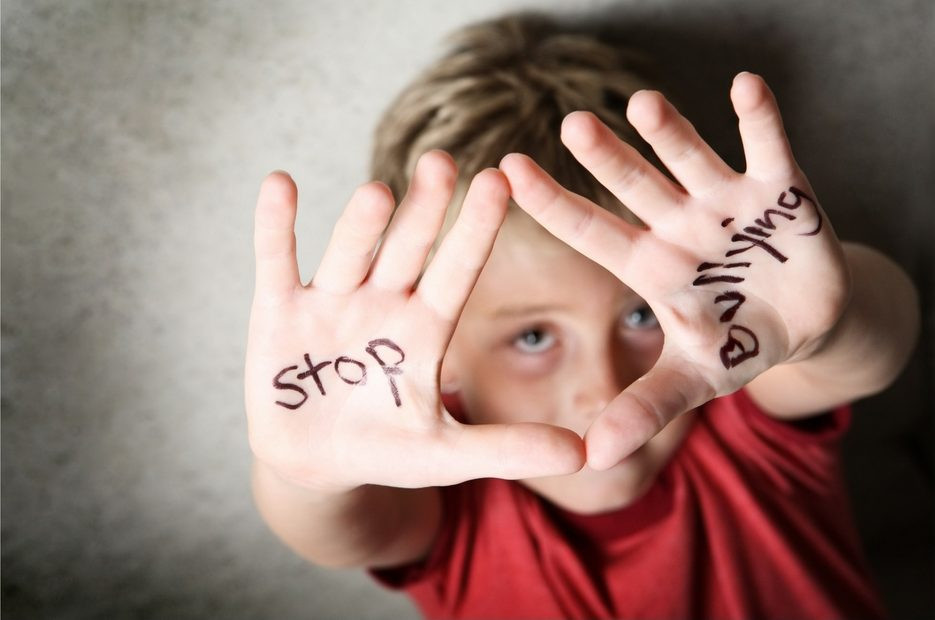Bullying, a deep-rooted plague that needs extermination
Bullying is a deep-rooted issue that has deep and damaging consequences that are often hard to grow out of


School Bullying is a type of bullying, that occurs in any educational setting
“X” and his gang of obnoxiously showy buddies began kicking him around like a soccer ball across a field when he was just eight. He got so used to the tugging feeling of helplessness when he was curled up in the fetal position in the cafeteria corner until it overcame him that by the time he matured into a young man, he still didn’t know how to defend himself. All he knew was the feeling of helplessness and being the “submissive” that made him an easier target for the actual weak, “X” and his buddies. He is now an edgy 27-year-old who jumps at a friendly slap on the back and doesn’t know how to say no to a toxic person taking advantage of him. Why? Because he is always told that he is a man and “needs” to toughen up.
A plague that has stolen the most out of children and adults alike, bullying in all its forms, physical, emotional, mental, psychological, cyber and even verbal, is a repeating pattern that is intended to show inferiors as the weaker race as opposed to the dominant, who finds satisfaction in resorting to abuse in order to degrade those they find intimidating. With this said, it is highly believed that most cases of bullying is when superiors target someone weaker, someone small in stature maybe, or their social status or even someone they find “ugly”, for their race, religion and even their sexual identity.
The extent of bullying and victimization in the Maldives has reached as far as suicide. It is observed that over 50 percent of the student community in the small-island state suffers severe impacts of bullying. While bullying is not limited to a specific gender, the country sees the number of male bullies comparatively higher that females. The nationwide issue has paves way for negative consequences in a school ambiance as well as the work climate.
While people may get bullied at any age, an adult over 40 has as much chance at getting bullied as a 10-year-old, whose mind is still growing. There are chances that the bully is just bored and looking for a way to entertain themselves by chipping away at what makes someone themselves, their identity.
Some of the signs of bullying include manipulation, gaslighting -when someone abuses you in such a manner that makes you doubt your own choices, sanity and even your perception of reality- and even taking control over your life. It is important to recognize these signs as going through any of this may leave us with a feeling of impunity for the rest of our lives. Although it is not impossible to grow out of the pain of having been bullied, toxic traits in a person may also be a sign of bullying that we often tend to ignore. It is not always physical, it is not always taunting and teasing. It is also found in mind games and psychological torture someone puts us through.
Studies have shown that being targeted for bullying in all its forms can lead to an increased risk of suicide, depression, reduced performance both at school and work and low confidence as well as self-esteem which is hard to regain. While most cases show the effects of bullying kicking in during childhood, those who have been bullied at some point of their earlier lives have a higher chance of having problems emotionally functioning. Such children have showed signs of depression, anxiety, panic attacks and even antisocial personality. It’s not easy to outgrow the pain of bullying and it has a heavy and possibly permanent impact on their mental health as adults.
Some of the growing effects of bullying that may stick include fatigue, depression, social anxiety, trouble concentrating, zoning out, and becoming edgy and irritable at the slightest inconvenience and of course, fear.
Prevention.
While there are different ways to prevent the growing impact of bullying for every individual person as per their personalities, it is important to teach our children or anyone who is close to us who are showing signs of isolation, coping mechanisms, some of which include trying to focus their anger and frustration onto a hub, the hub where everything meets, the center of all their troubles. To find the hub, it is important to explore what calms us down be it painting, writing, activities, or anything that we may practice in order to boost confidence because feeling good about oneself is the first step to shunning off anything that may be harmful to their self-esteem. Other techniques include sharing with a trusted friend, teacher, colleague or even parents. One of the most effective techniques, as learnt being someone who has been considered a “swamp thing” for the most of her younger life, is practicing the art of ignorance.
By choosing a healthier way to express one’s frustration, we are in turn detaching ourselves from the poisonous grip of our painful past.
It is a known fact that bullies find satisfaction in getting a reaction. The art of ignorance shows them who is dominant and that they do not have power over the emotions of their prey. Bullies get frustrated by this, consequently, it is important to walk tall, chin up. Body language is also an important factor in showing the bully who is dominant and what kind of vibe their target chooses to give them.
While self-defense is not everyone’s cup of tea, vulnerability is something through which one can discover their strengths. For some of us it is during the most helpless situations where we discover our courage. The wounded have often turned into some of the mentally strongest people among us.
What goes on in the mind of a bully?
As bullies do not tend to have a sense of security and lacks empathy, they tend to act out in order to make themselves feel better about their own insecurities.
If you recognize yourself as someone who has ever bullied someone, be it when you were young, or even when you’re a full grown adult having lunch with a co-worker and feel the need to pick on the amount of food they are consuming to take a jab at their appearance.
Do not let someone get comfortable “roasting” you. Words can do more harm than an actual dagger through a limb. It is important to practice empathy, crucial to stop willfully hurting others. It is crucial to understand that while some have a higher tolerance towards being “roasted”, there are those who get triggered due to a bitter experience of their childhood.
If not addressed, bullying is a deep-rooted issue that has deep and damaging consequences that grows into you, echoing into our progress, in turn affecting future interactions, relationships and even behavior.





